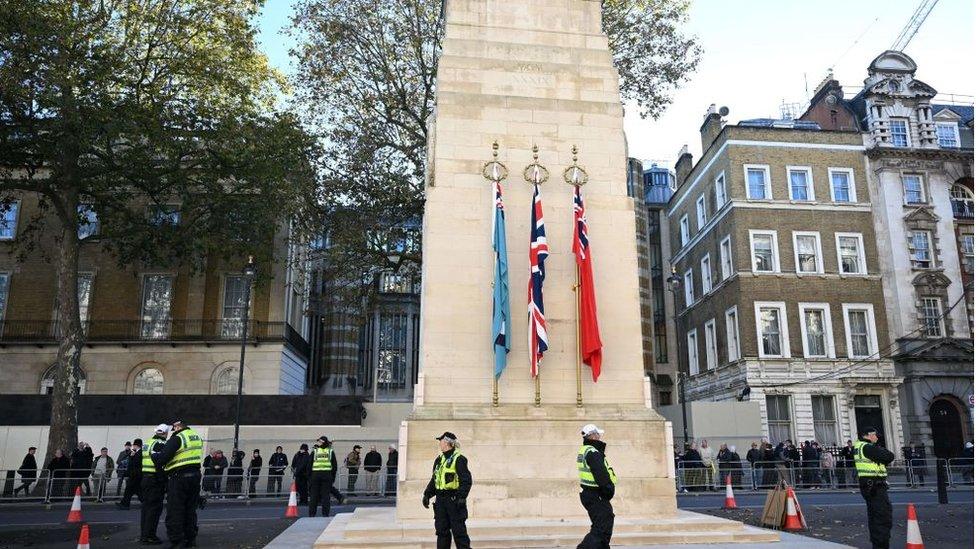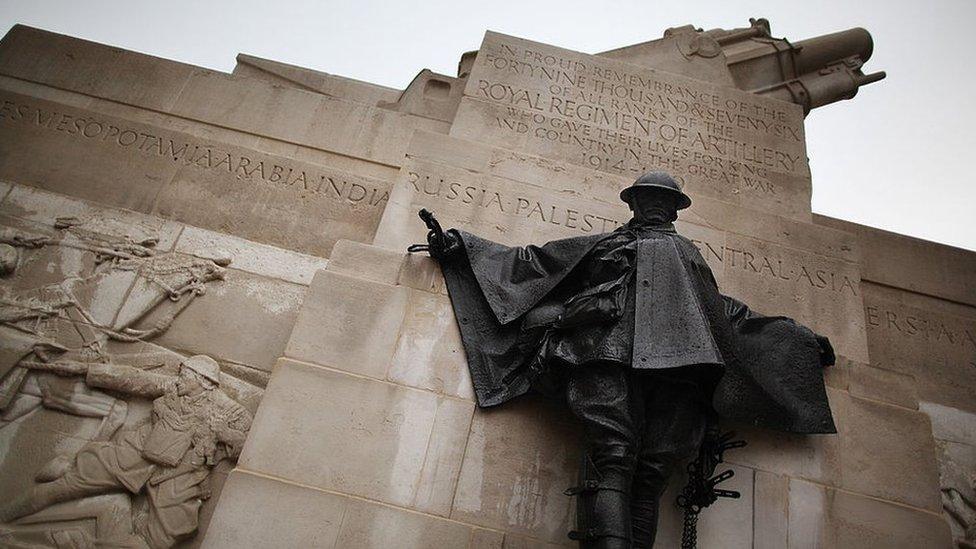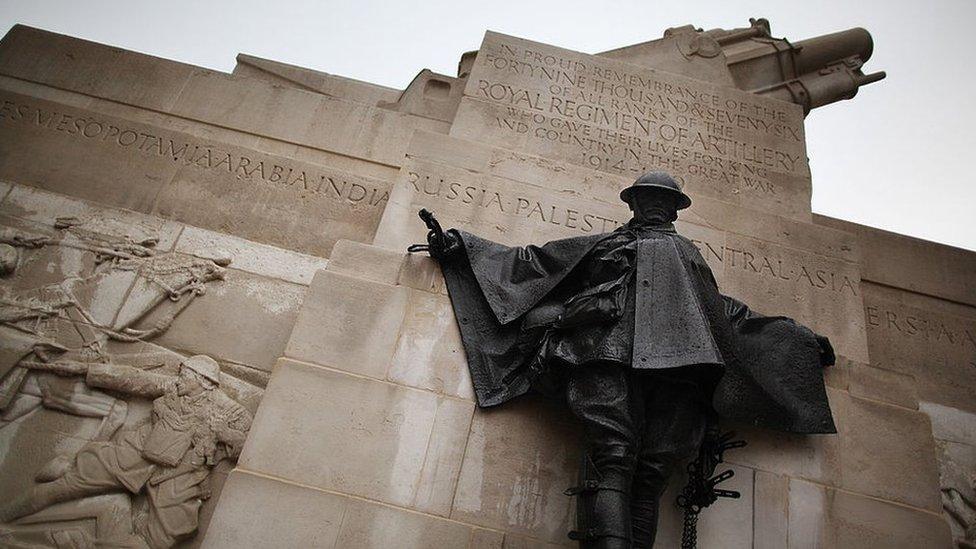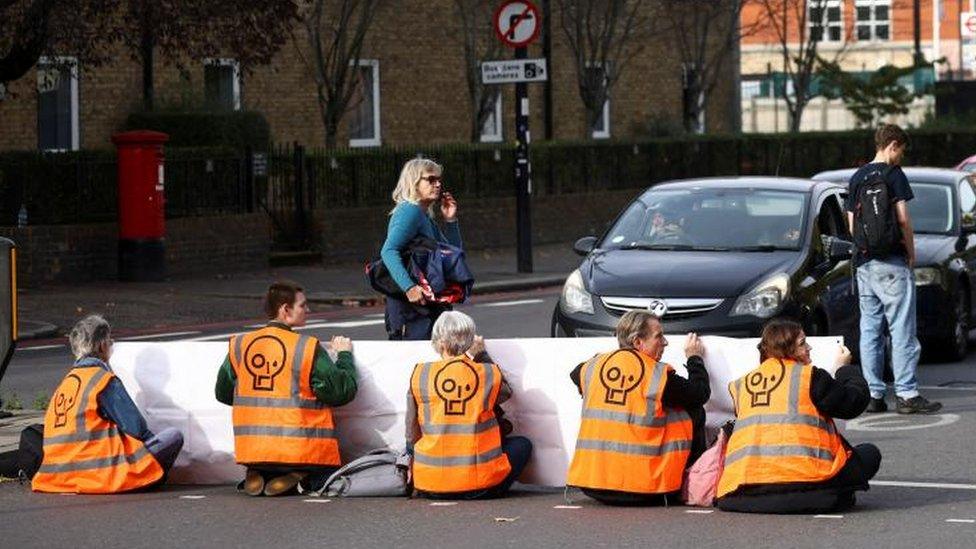War memorial protesters could face jail under new law
- Published

Protesters who climb on to war memorials could face up to three months in jail under new laws put forward by the government.
Security minister Tom Tugendhat told MPs people who scaled national monuments could also be fined £1,000.
Protesters could be arrested for covering their face to try to hide their identity, or for carrying flares or other fireworks.
"Desecrating" national memorials would not be tolerated, Mr Tugendhat said.
War memorials were "the altars of our national grief" and the government would not stand by while they were "disrespected in this way", he told the Commons.
Such actions were "an assault on the memories of so many who have given their lives for our freedom and to defend our nation" and went "beyond the legitimate exercise of free speech", he added.
Campaigners have described the measures, which will apply in England and Wales, as a "threat to everybody's right to protest".
But Mr Tugendhat announced that, while the UK had a "proud tradition of peaceful protest" and the right to protest was "fundamental to our democracy", that right would be removed as a reasonable excuse for "disruptive" offences such as blocking roads.
Labour's shadow security minister Dan Jarvis said his party would scrutinise the proposals to ensure any new measures were applied "appropriately and proportionately".
He argued that when the "right to legitimate, peaceful protest" was "abused to intimidate, harass and harm others", safeguards must be put in place to protect the public and enable the police to maintain order.
But he warned there might sometimes be legitimate reasons for protesters to wear face coverings, such as "dissidents opposing oppressive regimes" outside foreign embassies who wanted to conceal their identity to protect their families from harm.
Mr Tugendhat assured MPs that ordering the removal of a face covering would be at the police's discretion.
SNP frontbencher Amy Callaghan said her party would oppose ministers "clamping down on the right to protest". She accused the government of "pandering to its far-right wing".
Police already have the power to ask people to remove face coverings at designated protests where forces believe crimes are likely to occur.
But the new offence will allow police to arrest protesters who disregard their orders, and those who flout the rules could face a month behind bars and a £1,000 fine.
'Massive overreach'
The possession of flares, fireworks and any other pyrotechnics - which Mr Tugendhat said had recently been fired at police officers - at protests would be outlawed, with offenders also facing a £1,000 fine.
BJ Harrington, the chief constable of Essex Police, who leads the National Police Chiefs' Council's, external work on public order, said the plans would give officers the powers they needed to "get the balance right between the rights of those who wish to protest, and those impacted by them".
The use of flares and pyrotechnics at protests was "rare" but "still extremely dangerous", he said, adding: "Safety is our number one concern when policing these events."
Mr Harrington insisted police were not "anti-protest", but argued there was a difference between protest and "activists who deliberately disrupt people's lives with reckless and criminal acts".
Akiko Hart, director of human rights group Liberty, condemned the new measures as a "massive overreach by the Government and a threat to everybody's right to protest".
"This is an outrageous attempt to clamp down on our fundamental right to stand up for what we believe in.
"Bringing in these powers put people at greater risk of being criminalised for exercising their right to protest - including disabled people, who in some situations have only felt comfortable protesting in public when wearing face coverings," she said.
The proposals will be added to the Criminal Justice Bill currently being considered by Parliament.
Related topics
- Published4 February 2024

- Published16 November 2023

- Published2 July 2023
